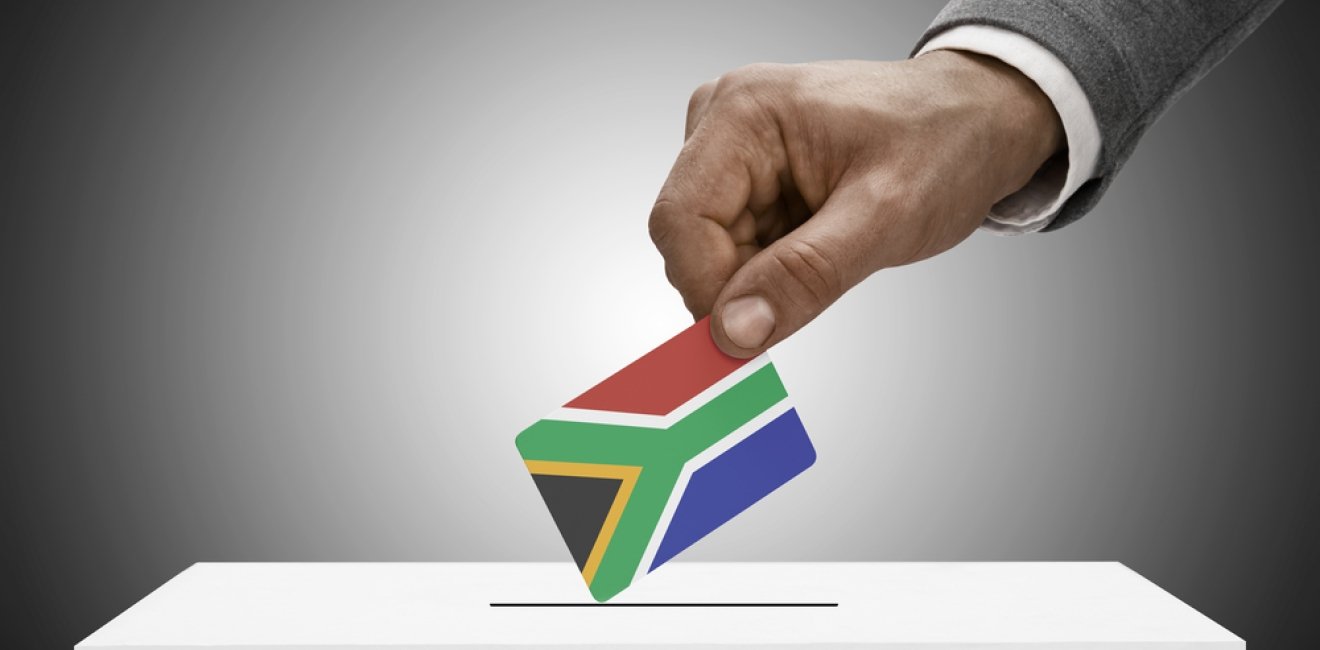
A blog of the Africa Program
Democracy was a big winner in South Africa’s election last week.
The ruling African National Congress (ANC) had dominated the country’s politics since the end of Apartheid. Over thirty years, aided by thumping majorities from the electorate, the party of Nelson Mandela went from an admired custodian of the state to its rapacious landlord. No more: its share of the national vote plummeted from over 57 percent in 2019 to 40 percent in 2024.
Few predicted that the ANC would accept such a loss without a fight. The organization had become too corrupt, too entitled and too dysfunctional; majority power was the glue that held the party together. That still may prove true; yet, once the final result was confirmed by the country’s respected electoral commission on 2 June, South Africa’s President and ANC head, Cyril Ramaphosa, readily accepted the voters’ verdict with grace and equanimity. "Our people have spoken, whether we like it or not," said Ramaphosa. He vowed to uphold the constitution in whatever governing arrangement the ANC reached with opposition parties. A lesson for Africa and the world: statesmanship par excellence.
But democracy was a big loser in the election, too.
Voter choices and turnout raise sobering questions about South Africa’s trajectory. Two in every three voters stuck with the ANC or ANC-breakaway parties (the Economic Freedom Fighters and the MK [uMkhonto weSizwe] Party). What mattered to them was not the desultory record of the ruling party on everything from crime and corruption to unemployment and inequality, nor the venal rhetoric and anti-constitutionalism of the ANC’s offspring. Instead, the ‘politics of the belly’ won the day.
Stark questions must be asked of South Africa’s democratic opposition parties. If they could not make deeper inroads in this election, it seems fair to ask if they ever will—especially when one thinks of the millions of voters who just didn’t bother. Nearly 1 in every 3 South Africans eligible to vote stayed at home during what many called the ‘most important’ election in three decades.
The strangeness of this political moment is that all this will soon be forgotten.
The discussions between the ANC and delegations from across South Africa’s political landscape are historic. The fate of the president hangs in the balance and so too does the future of South Africa’s democracy. Will the much-praised constitution of the republic continue to serve as both the supreme law of the land and the embodiment of the 'rainbow nation’s' yearned-for future? Or will it be turned over to those who see it as an obstacle rather than a loadstar?
The nation is staring in the mirror.
Staring back is a dramatis personae made for Netflix.
First among them, the president. Cyril Ramaphosa was still in his 30s when Mandela appointed him as the ANC’s lead negotiator in South Africa’s transition to democracy in the early 1990s. Historians may judge Ramaphosa’s dithering and timidity in office as well as his inability to deal decisively with corruption and incompetence within ANC ranks, as one of the reasons his party—and the country—now face a near-existential crisis. But he is a reform-minded democrat and by far the most popular leader in the country. He does not trust some powerful figures within his own party to do right by the constitution. And he will not want to hand it over to either of his former ANC comrades, Jacob Zuma or Julius Malema, who would rip up large chunks of it if given the chance.
Zuma’s MK party came out of nowhere six months ago and won 15% of the national vote, making it the third biggest party. It nearly won a majority in his home province, the Zulu heartland of KwaZulu-Natal. President of South Africa for nearly a decade, Zuma brought the country to its knees under his misrule. The economy tanked, corruption soared and once-great institutions were destroyed. In 2018, his then deputy, Ramaphosa, led the march to remove him. Disgraced, ridiculed, and even briefly imprisoned (which precludes him from entering parliament), 82-year old Zuma seemed destined to spend his remaining days fending off corruption charges—until the MK Party, drawing on a Zulu-nationalist base and old ANC allies marginalized by Ramaphosa, defibrillated his political life. They immediately declared the election rigged (against them). Zuma warned of violent mayhem if they don’t get their way.
Zuma’s rhetoric has been so incendiary that he has all but supplanted Julius Malema as the ‘bad boy’ of South African politics. Malema’s Economic Freedom Fighters (EFF) notched up 9% of the vote, making it the fourth biggest party, a disappointing result given that its leader is almost never out of the headlines. No single politician has shaped South Africa’s political discourse over the past 15 years more than Malema. A savvy and ambitious firebrand, Malema calls for mass land redistribution (from rich white citizens to poor black citizens) and the nationalization of mines, banks and other key parts of the economy—but he has hit a hard ceiling. The EFF alone is no longer a viable path to the presidency. One theory about his relatively muted language on the campaign trail is that he is eyeing the deputy president role in an EFF-ANC coalition. That seems highly unlikely, unless Ramaphosa—the man chiefly responsible for Malema’s expulsion from the ANC back in 2012 – is removed internally.
And that leaves Helen Zille. She is not the leader of the Democratic Alliance (DA), which came in second in this election, scoring nearly 22 percent of the vote. But she is undoubtedly its most influential figure. A former mayor of Cape Town, premier of the Western Cape province, and DA national leader, Zille is tough and competent. But she divides opinion as no other politician in the country. Her champions see her as South Africa’s strongest advocate for the rule of law and a liberal, free-market economy; detractors believe she is an enemy of transformation, determined to preserve white privilege at all costs.
Around these four gigantic personalities and their respective parties, some government power sharing agreement must be forged in the coming days. It could be a coalition, a government of national unity or some other arrangement, but regardless of their choice, South Africa has an unexpected chance to renew its promise. The historical moment calls to mind another time, when South Africans—not least the current president—lit the world’s imagination. And changed their country for the better.
The opinions expressed on this blog are solely those of the authors. They do not reflect the views of the Wilson Center or those of Carnegie Corporation of New York. The Wilson Center's Africa Program provides a safe space for various perspectives to be shared and discussed on critical issues of importance to both Africa and the United States.
Author

Independent

Africa Program
The Africa Program works to address the most critical issues facing Africa and US-Africa relations, build mutually beneficial US-Africa relations, and enhance knowledge and understanding about Africa in the United States. The Program achieves its mission through in-depth research and analyses, public discussion, working groups, and briefings that bring together policymakers, practitioners, and subject matter experts to analyze and offer practical options for tackling key challenges in Africa and in US-Africa relations. Read more

Explore More in Africa Up Close
Browse Africa Up Close
The Innovative Landscape of African Sovereign Wealth Funds



